The Price to Pay for Water.
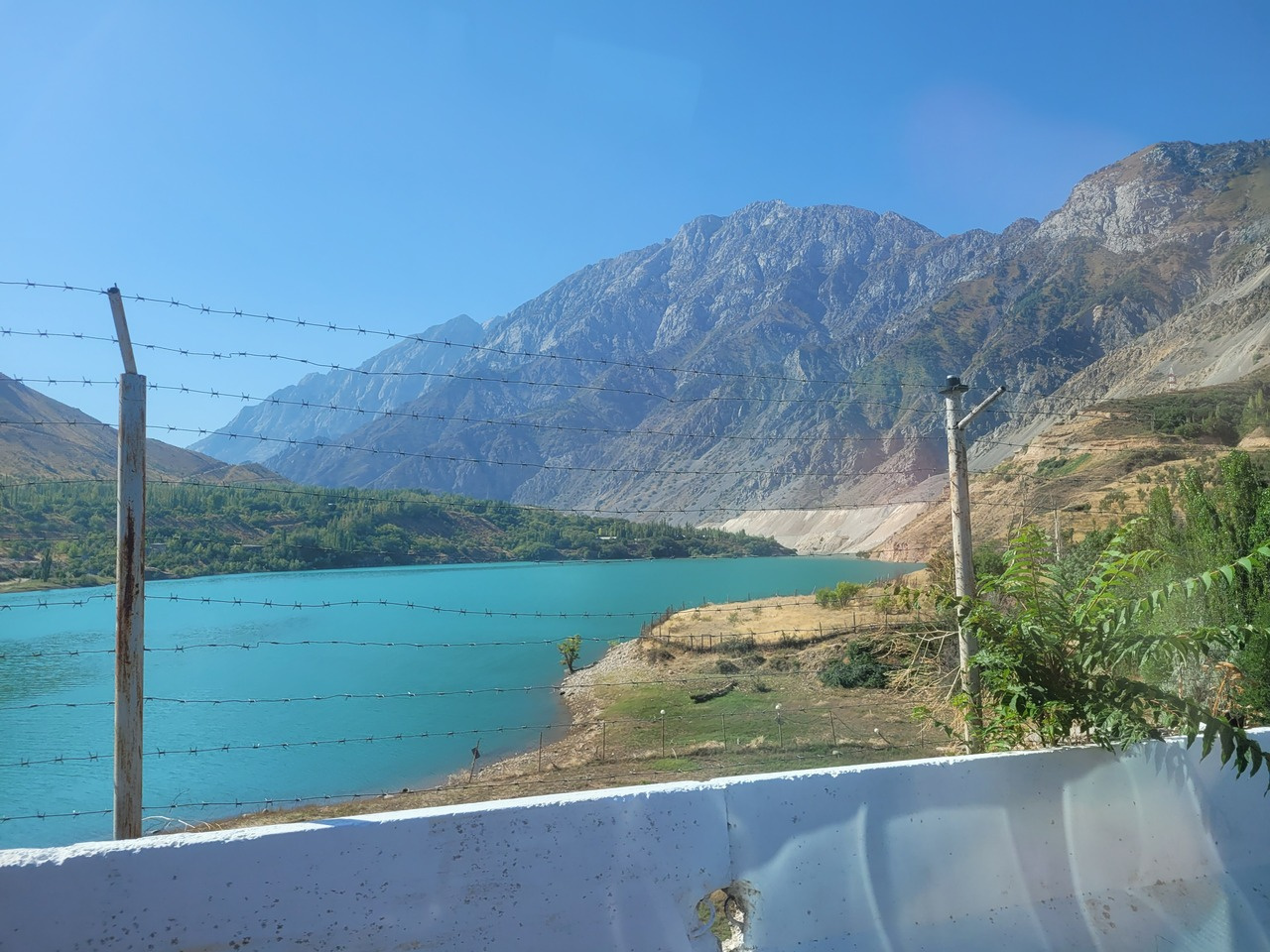
Tashkent wakes up gently in the summer, because even at 7:00 am, the heat is repressive. Slowly, the city begins to buzz with all the normal signs of life- streets and buses fill up, car horns sound, and kettles and coffee machines steam.
One other sound heralds the coming of a new day. Across the city, the taps are turned on. Sprinklers and hoses are turned to lawns and flowerbeds. Fountains dance in the parks and squares. But not only the plants- the streets, the pavements and the patios get hosed down too. And this starts again at dusk, after the sun has once more scorched the city.
True, the city would not be half as pleasant without its greenery. Every patch of shade is welcome in the burning heat, and the flora is crucial to a city facing creeping air pollution in the centre and increasing dust storms round the edges. Of course, this all demands water, like we all do, all around the world.
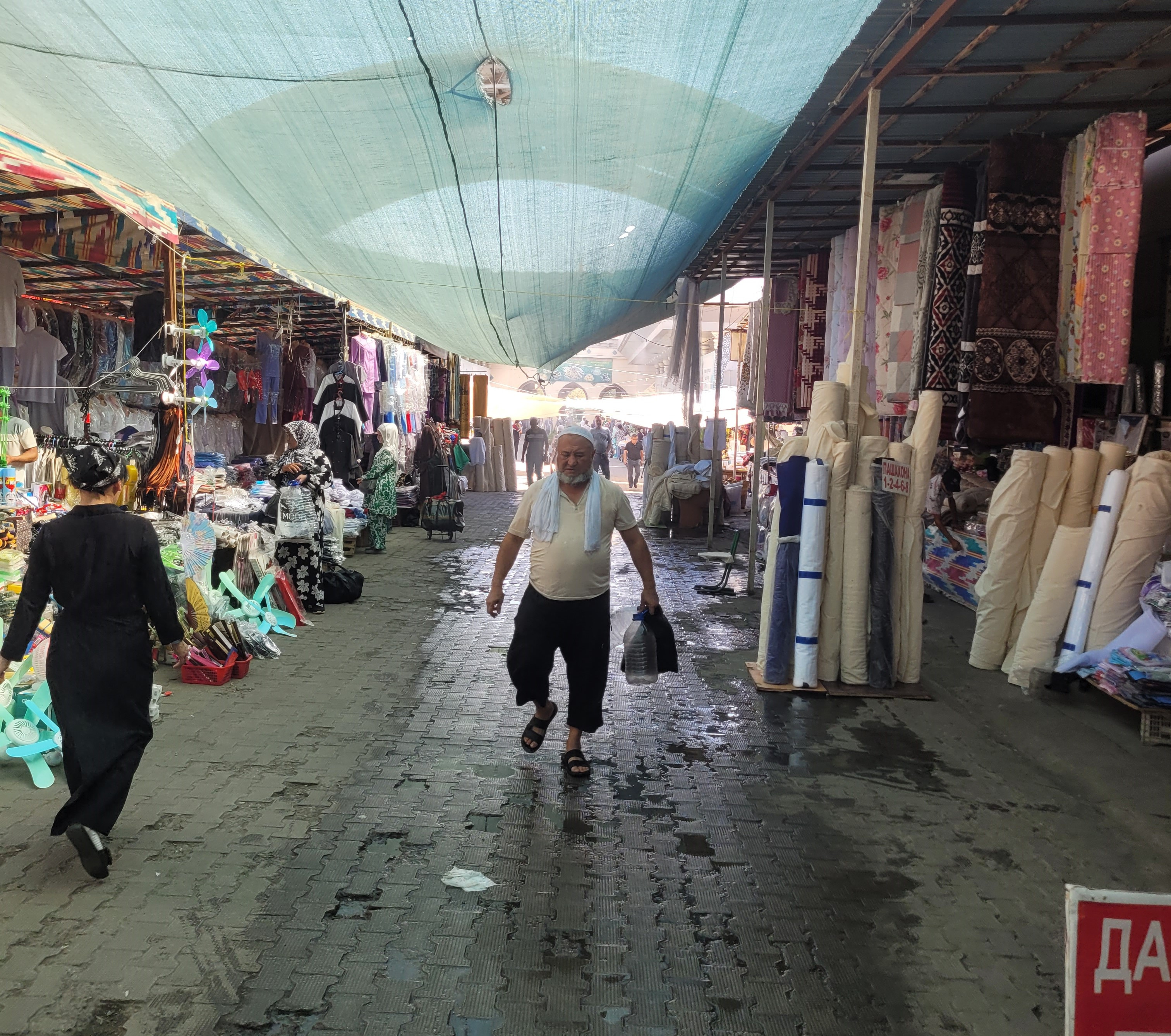
But it is not so much this that disturbs me on my morning runs. It is the waste, the amount of water that the plants don’t get to drink. I have still not quite found out why so many in Tashkent feel the need to water the pavement, twice a day- some say it is cleaning, others that it cools the area or protects from the sun. there they stand, with the hoses running.
The water simply runs away.
Everything gets watered so much, so often, so freely, that even in these dry months, drainage channels can overflow. The water that sits on the streets, and in the public fountains, simply evaporates in the midday heat. And as the sun starts to set, yet more water is brought down from the reservoirs to Tashkent, and the ritual starts all over again.
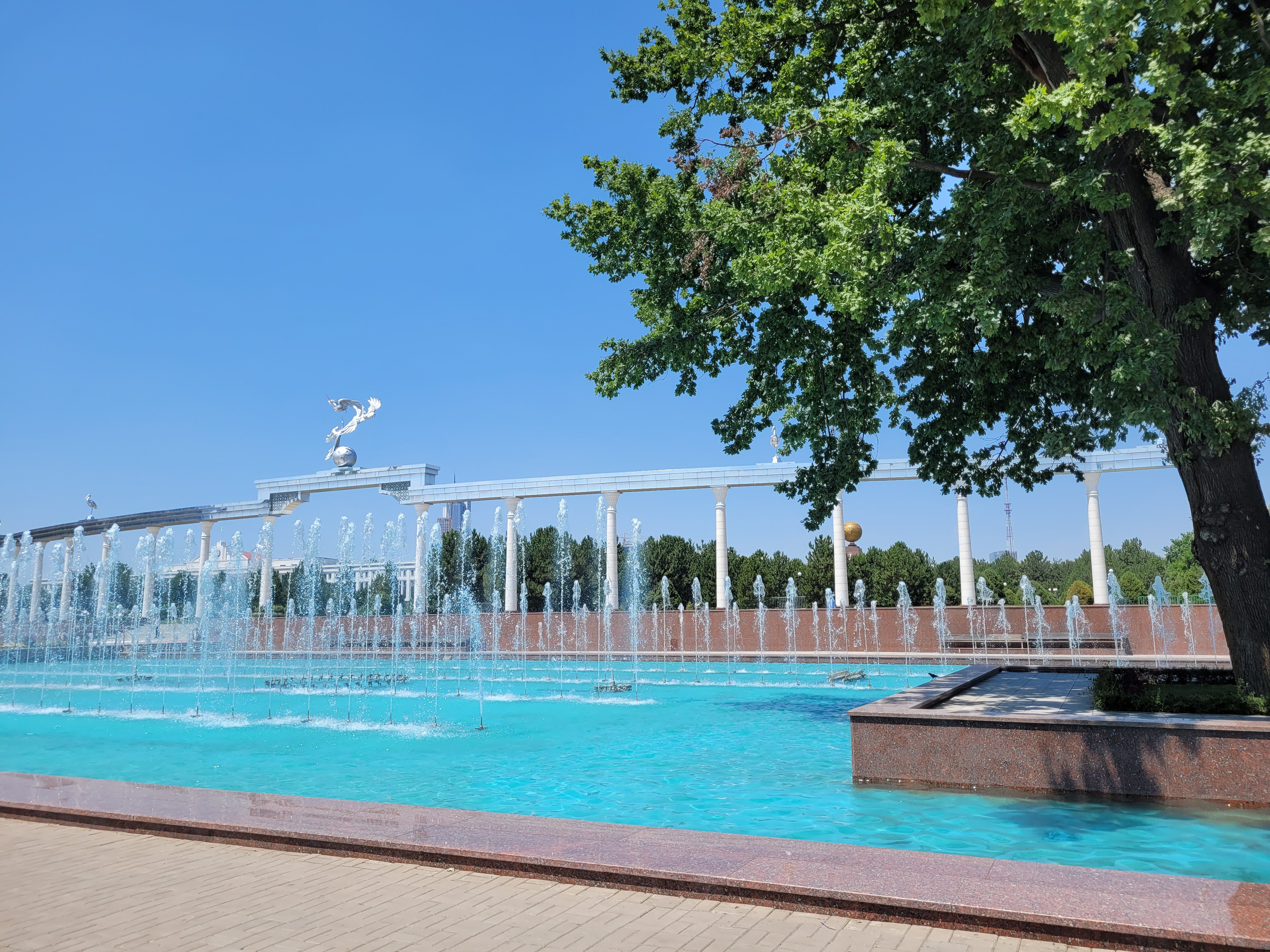
All this in a country, region and world that is getting drier. Uzbekistan ranks 25th among countries suffering from water stress and yet has one of the most inefficient water usages in the world. By 2030, estimates suggest Uzbekistan will be short of almost 7 billion cubic metres per year, or around 25% of its current usage. About 80% of Uzbekistan's water comes from other countries, which are also facing water shortages and energy crises of their own, and so diverting water from their neighbours. On the shore of the Aral Sea, the ever shrinking lake in the heart of Uzbekistan, one feels the problem from the dust in one’s eyes. Once the world’s fourth largest inland sea, the intensification of agriculture and cultivation of cotton in Uzbekistan drew the water from the lake to the fields, and then to be evaporated away- taking with it the rich livelihoods, biodiversity, and security that the lake had nurtured, and leaving only a small body of water too salty to support life.
I’m not writing this to blame or mock the street-side waterers. After all, they’re not to blame for these crises. The destruction of the Aral Sea was, it now appears, pure colonialism on the part of the Russian and Soviet Empires, a desire to extract resources from the peripheral republics in pursuit of industrialisation and power. The continuation of cotton production, a wasteful and barely profitable process, simply makes the problem worse year by year. Moreover, developing states such as Uzbekistan cannot be blamed for the problem of global warming, which will evaporate yet more water away. It was the so-called “industrialised” nations that started much of this. Whilst the global average temperature is on track to increase by 4 degrees Celsius, for Central Asia, the rise will be 7 degrees.
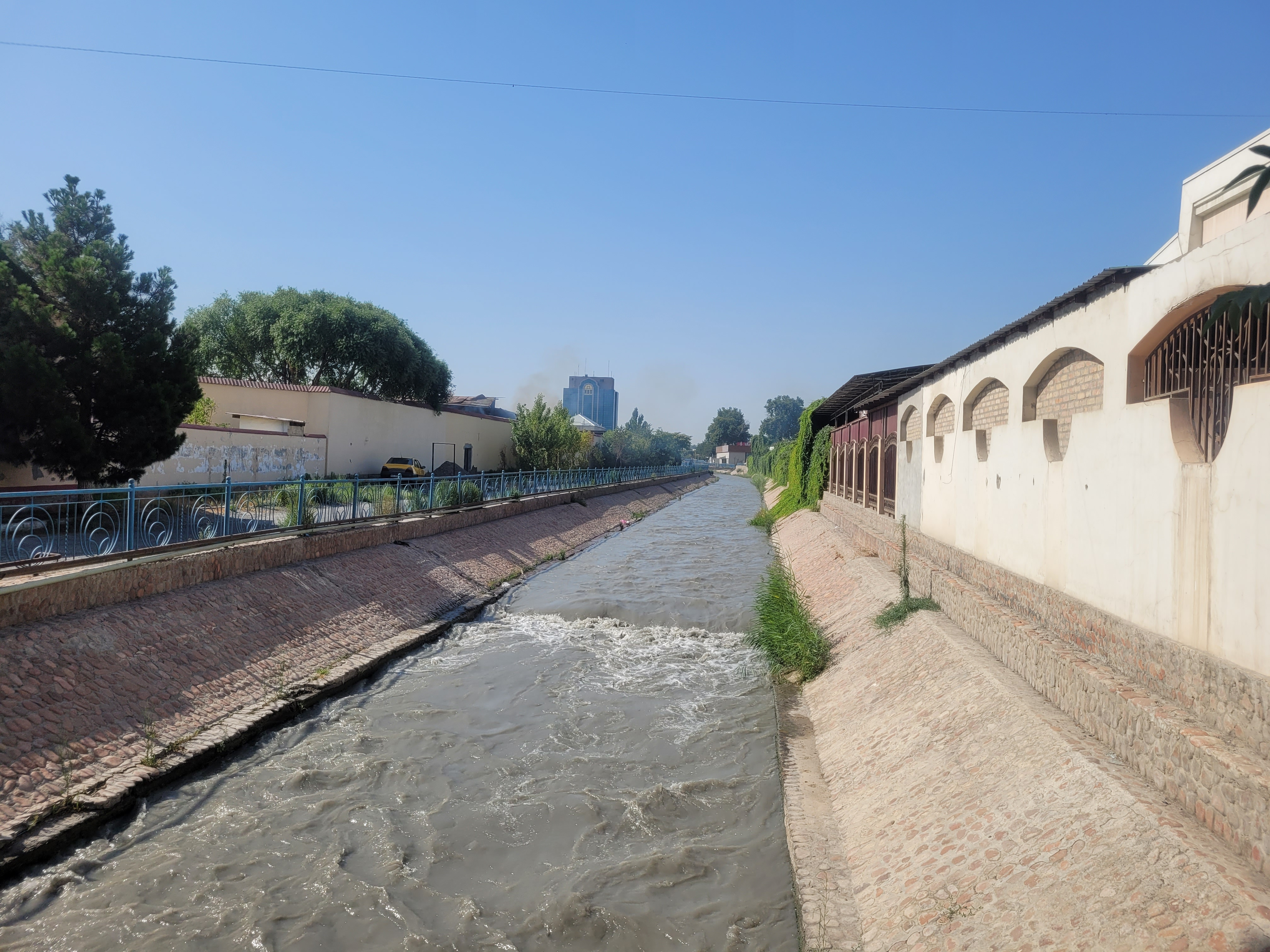
Yet we can all play our part, in every level of every society. There is a mentality that means that this water wastage continues, which came about under the USSR- water wasn’t valued. It was free, for all. It was a tool for building socialism. The post-independence regimes have been reluctant to put up prices, despite the dual needs to discourage water use and invest in water systems. After all, they have built their legitimacy on providing the people with a secure and reliable day-to-day life. given the uproar that similar reforms have caused in neighbouring countries, it seems that if the water price of water goes up, these regimes security goes down.
But it is worth asking- what happens when the taps run dry?
Changes are coming, slowly. Thanks to the work of those in ministries, national and international NGOs, Uzbekistan is planning a host of new reforms to implement water-saving technology. Yet there is so much more to be done, as the fountains that decorate the presidential buildings show.
There is hope in all this, though. Whether governments bring in “green” agendas or not, it is ultimately up to the people. From taxi drivers to bazaar traders and hotel receptionists, Uzbekistan is coming to know that the country needs to preserve this precious resource. I’ve been lucky enough to see the people’s efforts, and it reassures me- in fact, it has taught me how to really value this earth, a connection that I feel many in my own “home” have also lost.
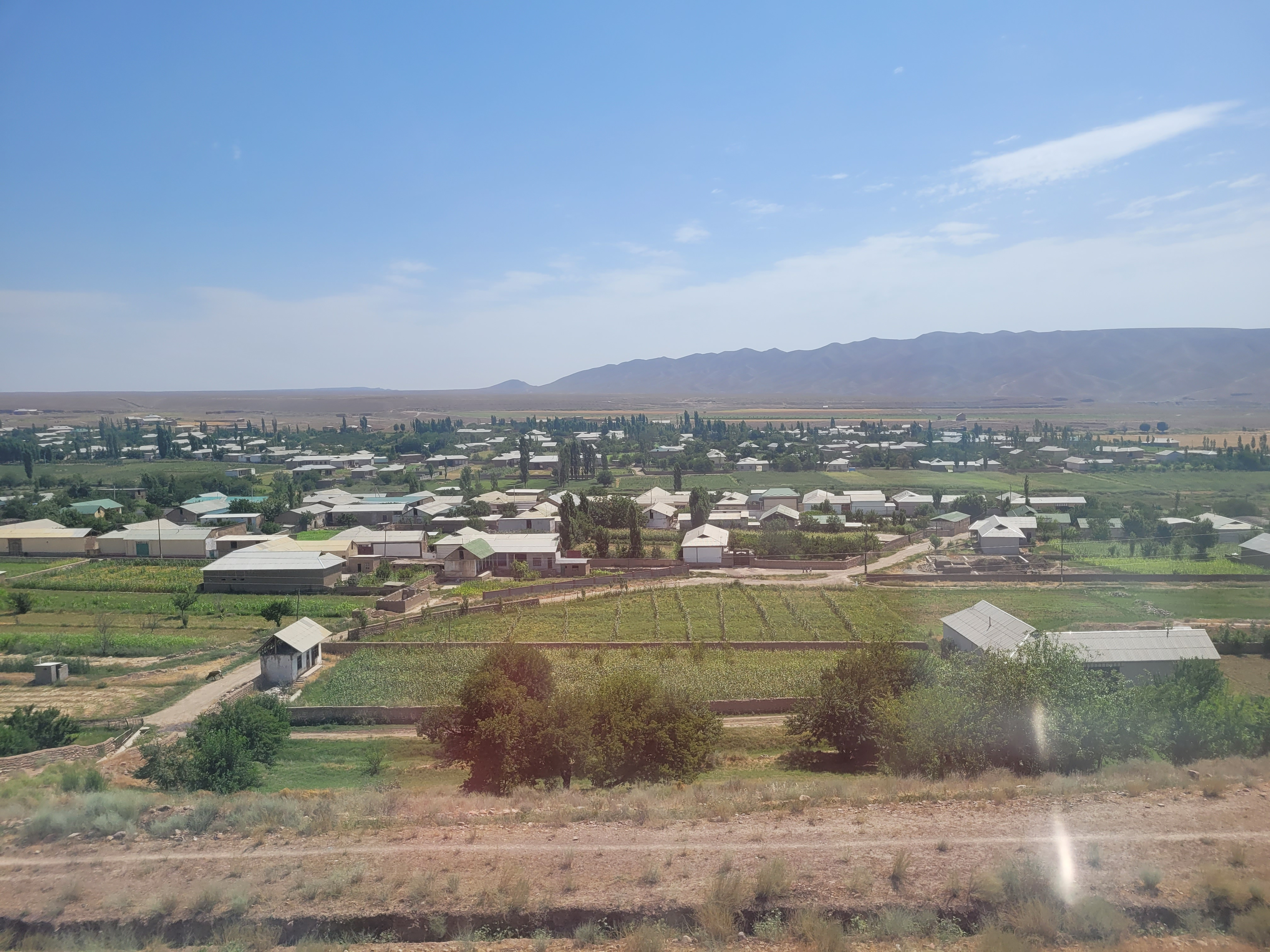
Now, many are working to bring a society together which knows what it can do about the problem. People can make a difference, especially as it gets to a point where every drop counts. From teaching children to turn the tap off whilst brushing their teeth, to contenting homeowners with a half-as-green garden, I've been lucky to witness work going on, the role that education can play in confronting the climate emergency. It cannot come soon enough. What I admire most, perhaps, is that those who told me they were struggling were also often the ones who said that they were willing to pay the price for water.
Here there should be a footnote for us all. Water isn’t, in fact, a national resource. It knows no boundaries. Neither does water shortage. It is something we share- and should share, especially with those in need of it. A water crisis in Central Asia would affect us all and is already affecting our planet's delicate biodiversity. What we do at home, too, can make a difference here. Because if you open the news, you’ll see how these blistering summers are getting ever closer. We’ll have to face them too.





Please sign in
If you are a registered user on Laidlaw Scholars Network, please sign in